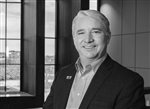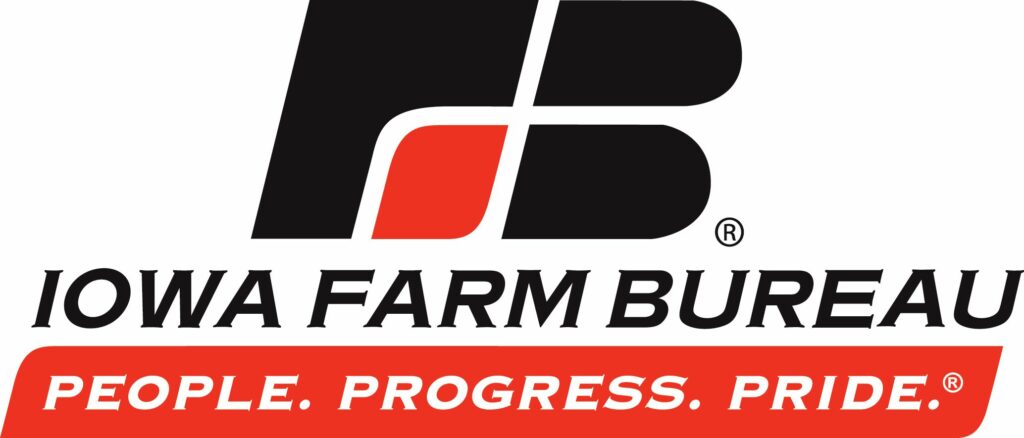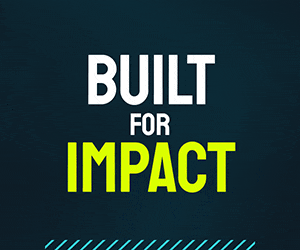A Closer Look: Clay Holderman
For UnityPoint Health’s new president and CEO, it’s all about making a difference

JOE GARDYASZ Jun 8, 2021 | 7:23 pm
11 min read time
2,583 wordsA Closer Look, All Latest News, Health and WellnessClay Holderman began his duties as president and CEO of UnityPoint Health in mid-February, joining the organization after working for the largest health system in New Mexico. Most recently he was executive vice president and chief operating officer of Presbyterian Healthcare Services in Albuquerque. With more than 30,000 team members, UnityPoint Health has annual revenues of $4.4 billion, with providers and services in hospitals, clinics and at-home settings across Iowa, Illinois and Wisconsin. Holderman began his career as a physician recruiter and has more than two decades of experience in investor-owned and not-for-profit health care leadership. Last year he completed a term as chair for Make-A-Wish New Mexico, and also chaired the local United Way’s Alexis de Tocqueville Society campaign. He and his wife love to cycle and recently discovered the inviting outdoor deck of Confluence Brewing Co. in Des Moines. He has already driven throughout Iowa as part of a trek to visit all nine of UnityPoint Health’s affiliate regions. “I love that Dubuque to Cedar Rapids corridor, and I love the rivers — the river cities and river overlooks are just fantastic,” Holderman said. “Coming from the desert, that’s something I’ve never seen.”
Are you getting settled in, or are you and your family still between here and New Mexico?
We’re in the process of empty-nesting. My youngest is graduating high school right now in New Mexico, and getting ready to go off to college, and so my wife and I are back and forth until she graduates. I rented a place here, near Jordan Creek mall, and I’m actually under contract for a house near Quail Park, so I’m starting to set roots. But my wife is still back and forth until my daughter gets launched.
Is the housing market as crazy in Albuquerque as it is here?
It absolutely is for houses. The houses here, everything was going off the market in about two days. So I made a full-price offer on a house after only seeing it for about 15 minutes. In New Mexico, we’re going to move my mother-in-law to our home and hang on to it. I have two children, one in Texas and one in California, and so we’ll probably celebrate major holidays around my mother-in-law with our kids and in the New Mexico home.
I saw from your LinkedIn profile that you began your career as a physician recruiter. Tell me about that and how your career in health care administration got started.
I actually was going to be a Methodist minister, or that was what I thought I was going to be when I went to college. So I came out with an English major. At some point I decided I never wanted to be on the payroll of a church, but I still had a lot of the mission inside of me. Being a physician recruiter was something that I could do with a liberal arts degree. But it sparked in me a passion for really impacting communities. I found out that the smaller the community, the bigger the difference it made when you placed the right physician there. And it wasn’t just a difference in health care; it was a difference in the schools and a difference in philanthropy and a difference in culture, and it was amazing. I kind of got addicted to that feeling that I could impact a community even though I wasn’t a clinician. Finally, one of my clients had quite a large list of physicians to fill, so he said, “Why don’t you just move here and I’ll pay for your master’s degree and give you a residency in hospital administration.” And so I moved to Somerset, Ky. Over the course of five years I recruited 51 physicians and became his associate administrator. I ultimately launched with the same company to my first chief executive officer role at a small hospital in Kentucky.
What motivates you the most as a health care leader?
I am very driven by impact. It’s the same thing from when I told you when I started as a recruiter — that I was amazed that my efforts could change a community for a generation. When you’re in either a single hospital or health system, you’re often the largest employer in the community, and you’re impacting people from every walk of life, every cultural background, every ethnic background, every socioeconomic background. You’re responsible for a whole microeconomy in a hospital environment or in the health system environment. And so you impact people personally as a mentor, in building careers and opportunities and development for people. And then you impact people at their most vulnerable moments, during their toughest times and during their most joyous times. So I just love being able to make an impact.
Obviously the pandemic has been transformational for health systems. What are some of the biggest lessons that you’re taking away from the past year in New Mexico and then transitioning to UnityPoint Health?
New Mexico is really not that different. … Well, the weather’s very different, I will give you that. But New Mexico has got about 2 million people, and is [larger in area] than Iowa. We both deal with issues of rural and frontier care and we both deal with different socioeconomic issues. New Mexico has an added burden of about 23 sovereign Indian pueblos or sovereign nations in our borders, but we had a pretty similar experience at Presbyterian as to what UnityPoint has here in Iowa.
I think one of the things we learned was to be a community regardless of what jersey we’re wearing. In New Mexico that was [Presbyterian] and the university and the for-profit system. Here it’s UnityPoint and MercyOne working together often. So we learned that we can work across brands for the good of our communities, and I’ve seen it here at UnityPoint. I watched in Dubuque where all of these seeming competitors were coming together with the county to staff vaccine clinics, and that’s kind of a beautiful thing. We learned we could be a lot more agile than we ever thought. Health care is traditionally very bureaucratic and very slow to change. And in COVID, we sent tens of thousands of people to work from home in a two- to three-day span. We changed all of our clinics from face-to-face to virtual care. … Whereas we’d always been 5% to 7% virtual, all of a sudden we were 70% and 80% virtual, and so we figured out we could be a lot more agile than we could than we ever thought we could.
Then finally, we became a lot more innovative than we thought we could. We changed care delivery models; we took care to the home that we had never taken before; we monitored people in ways we’ve never done before. Even with our therapeutics, we developed drugs more quickly than we ever had, we developed ventilators and isolation units and negative-pressure units on a dime. So those are some of the things that I take away from it.
What do you think will be some of the longest-lasting effects or most significant shifts for UnityPoint Health because of the pandemic?
Well, for direct caregivers, I think that the way the public views them will never be the same. I think this “health care heroes” sentiment was deep and real, and they recognize that while much of the nation went home and stayed safe – they didn’t. They went into COVID units and they cared for people. And they day-to-day worried about what they might be carrying into their own homes, and yet they came back the next day to provide care. So I think that connection to purpose will forever transform how people think of our workforce. We’ve seen an increase in people applying for medical school now, and I hope it increases people coming into all health careers. For our workforce, whether it’s human resources or analytics or accounting or payroll, we’ve learned to do [that support work] remotely and we may see as much as 60% to 80% of that workforce remain remote. … For that segment of our workforce, that may be permanent. And then for our clinics and our health plans and our accountable care organization, we’ve just learned new ways of delivering care that are wrapped around the patient. So I think the days of calling someone in to take time off work to discuss a test result, that’ll be done over FaceTime. I think there’s so many things we can do so much more conveniently around our patients and members, and so much more effectively, frankly.
Given the federal assistance that has come during the pandemic, what’s your feeling about the availability of funding to address health care equity, such as more equal access to health via telehealth technology?
During 2020, CARES Act funding was a lifesaver, and I would say it actually was adequate. It did make a difference. And our governments were incredibly responsive; they’d put a program in quickly, we’d give feedback, they’d make changes. In 2021, there has been some sense that that’s over, and it’s not over. Our Peoria region right now has a pretty major surge and we still have much higher costs for supplies and PPE. We’ve seen a degradation in our payer mix and we’ve not seen volumes return in some areas, like emergency departments and inpatient surgery. And so 2021 has been very difficult. I would tell you there’s not adequate funding, in regard to your larger question about people in more remote rural areas or people with transportation difficulties or in having access to broadband. There have been great efforts in Iowa to increase the infrastructure, but we’re not there yet. We’ve got to get to universal broadband because all of our education, our work habits and health care delivery now depend on it.
What other issues are top of mind as you look ahead to your first year at UnityPoint Health?
The No. 1 priority as I came in has been helping our entire workforce to recover. As I mentioned earlier, the fear for the last year that they didn’t know what they were carrying home. In the last couple of months as they received their full vaccinations, there was a feeling of security that came from that. But we also moved from being in the middle of a crisis to being post-crisis, and you recognize the burden you’ve been carrying that you hadn’t even really dealt with or allowed yourself to feel. So we’re seeing some post-traumatic stress syndrome and chronic stress syndrome, and looking at burnout. [Second], we are really having to adjust our care model quickly. I don’t think that these volume changes in demand in our emergency departments are temporary. I think people have found new ways to receive care, and we’ve got to meet them where they are as well. Consumerism is definitely on the rise.
What kind of changes could this mean for UnityPoint Health’s facilities footprint?
People may drive by and our most prominent features [they see] are usually our hospitals. But we are so much more than a collection of hospitals. We touch 1.2 million unique patients every year, whether we’re touching them in a hospital, in one of our clinics or in home care. Our ACO [accountable care organization], which has about 430,000 members in our value-based arrangements, has achieved some of the highest shared savings in the nation. And so you’ve seen us starting to change our footprint already. You’ve seen our UnityPoint Clinic Express units popping up to provide more retail-like, in-and-out quick care. You’ve seen our urgent care [clinics] around, you’ve seen our emergency cares. You may have been on our websites and seen not only our video visits and telehealth, but also now we [offer] asynchronous virtual care where you can fill out an online questionnaire form and in under 15 minutes have a provider review, diagnosis, and a prescription if needed, and have it waiting for you at Hy-Vee. So does the [trend toward changing care models] foretell a lot of changes to our facilities? Over time, yes. But we’re going to be planful about that. … You’ll see a lot more deployment in our at-home and our digital conveniences and our express options, and you’ll see our hospitals shift to even higher-technology, more complex care.
We recently had our Commercial Real Estate Forum and there was a video presentation about retail self-service kiosks that will be emerging for returning items. Can we expect much higher-tech health care lobbies?
You know, people may be surprised to learn UnityPoint is one of the largest health innovation incubators in the nation. We have investments right now in 10 different companies, eight of whom we have commercial contracts with today on how to change health care delivery in ways like you’re describing, and it’s pretty exciting. DocStation is one of our favorite ones — it transforms pharmacists into primary care providers and allows them to have full access to a medical record and take care of patient gaps in care without making them go back to a doctor’s office. We were the founding investor in that.
Tell me about your civic involvement in New Mexico. And what areas of interest do you bring with you?
In New Mexico I just finished my term as chair for Make-A-Wish New Mexico, and that is a very important organization to me. We lost a child when he was 17 to cancer. He was a Wish Child and I watched how it changed his outlook and his experience, and so that’s a phenomenal organization. I also chaired our United Way’s Alexis de Tocqueville Society campaign, which is a large giving campaign, and we have the same in the United Way of Central Iowa. In fact, the Albuquerque and Central Iowa United Ways have both been awarded for very similar performance, the size of their de Tocqueville campaigns.
What’s the most important career advice you’ve ever gotten?
Really, it’s the importance of serving. If you really are committed to something greater than just a paycheck, and care about the difference you’re making, the impact you’re having, then the paycheck will come, promotions will come. So whether it’s serving through helping develop others or serving through something altruistic like being a health care provider or just the privilege of serving, if you’re motivated by that, then everything else will work out.
Anything else we should know?
I don’t want to miss the opportunity to share with you some of my favorite things about UnityPoint. We call it our brand promise — this idea of helping people know how much they matter in this world is probably one of the main reasons that I chose to come here. I know most people come to Iowa for the weather, but I was compelled by the way people connect that brand promise into our values here. It’s probably one of the strongest cultures I’ve seen in health care. I’ve got to tell you, from the inside it’s real, and people are really, really committed to it. I met a group of people here called our Cultural Advisory Committee, and it’s about 38 people from across our three-state region that come together and they are just brand/culture warriors, and it is unbelievable to me how deeply people feel that responsibility to let everyone who comes to our doors know how much they matter.











